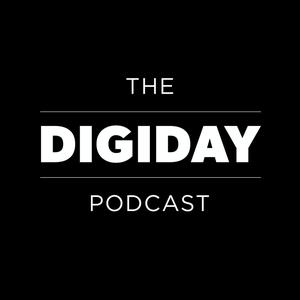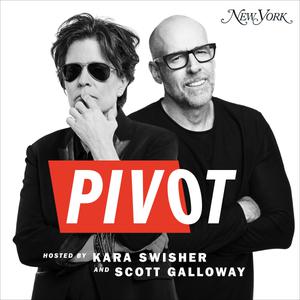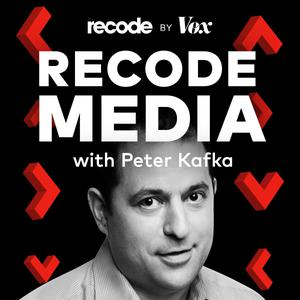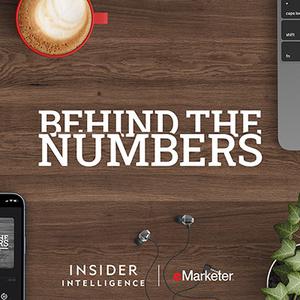
The Digiday Podcast
- 50 minutes 35 secondsVerizon revamps sports strategy, works with Paige Bueckers and NIL athletes
Over the last year, marketers have been shelling out dollars to show up in sports, the supposed last bastion of monocultural moments and opportunity to get ads in front of a massive audience. There's been an uptick of interest in unconventional sports like pickleball, and women’s sports. Streaming platforms like Netflix bet big on live sports in hopes to bring in more money from advertisers. Finally, since the National Collegiate Athletic Association (NCAA) approved its name, image and likeness (NIL) policy back in 2021, the lines between influencers and athletes is becoming more blurred.
That said, it’s getting more difficult for brands to stand out from one another as more advertisers flock to the space. That’s true even for a brand as big as Verizon, according to Nick Kelly, Verizon’s vp of partnerships. “We have to find something that we can own,” Kelly told Digiday.
In this episode of the podcast, Kelly sits down with co-host Kimeko McCoy, senior marketing reporter at Digiday, to talk about its revamped sports marketing strategy, venturing into NIL deals and this year’s Super Bowl plans.
Interview begins at 19:16.
21 January 2025, 5:00 am - 43 minutes 56 secondsWhat the agentic AI era means for ad agencies, with Omnicom’s Jonathan Nelson
Omnicom Group’s pending acquisition of Interpublic Group seems especially timely in the hindsight of last week’s Consumer Electronics Show in Las Vegas.
A major talking point among the brand and agency executives in attendance was the onset of the so-called agentic era of artificial intelligence, in which AI tools handle multi-step tasks for people like booking a full travel itinerary — or firing off a client brief. In this era, data will be at even more of a premium than it is today
“If you think about the IPG acquisition, we will have a broader platform to to do things. We will have the broadest dataset on the buy side anywhere in the world, and more expertise, more clients,” Jonathan Nelson, CEO of the agency holding company’s digital arm Omnicom Digital, said on the latest Digiday Podcast, which was recorded in person at CES.
The combined company will also have Omni AI, a product that Omnicom is developing to combine various foundational large language models. “We’re putting that on every employee’s desktop in Omnicom right now,” Nelson said.
Which gets at another aspect of how AI will affect agencies’ business. As agencies effectively outsource tasks to AI tools, the traditional agency compensation model — in which agencies are paid in accordance with the time it takes to complete client projects — will be under pressure. This is again where Omnicom is counting on the combination with IPG and the corresponding dataset — as well as its previous acquisition of commerce platform Flywheel — to be able to adopt a model in which its client fees are contingent on the results of its work rather than the time it takes to complete that work.
“Here we are sitting on this massive dataset. It’s coming together across audience, activation, outcomes. It has that purpose, which is driving towards outcomes remuneration,” said Nelson.
14 January 2025, 5:00 am - 55 minutes 19 secondsHow Domino’s CMO Kate Trumbull navigates inflation and reviving the brand
Fast food and quick service restaurant brands had a rough go over the past few years as shoppers have tried to save a few bucks amidst rising grocery prices and inflation. Seemingly, parts of the brand playbook are seeing a rewrite with things like $5 deals to make consumers feel they’re getting more bang for their buck.
It’s a tale all too familiar to Domino’s, the more than 60-year-old pizza brand that has marketed its way through brand lulls to try and win back customers who have pulled back on dining out. There were the “30 minutes or less” campaigns of the 90s, Pizza Turnaround in 2010 (when the pizza chain acknowledged the recipe needed work) Paving for Pizza in 2018, where Domino's paved roads to ensure pizzas arrived to customers in good condition, and today’s Emergency Pizza, a pizza giveaway for so-called emergencies like burned dinner.
In this episode of the Digiday Podcast, Kate Trumbull, Domino’s evp and CMO joins co-host, and senior marketing reporter, Kimeko McCoy, to talk about Domino’s brand playbook.
7 January 2025, 5:00 am - 40 minutes 59 seconds2025: The year of Twinkies, cockroaches, and chaos — Digiday Podcast looks ahead to a tumultuous year
2025 is expected to be a hell of a year, if you ask the Digiday staff. After the whirlwind that was 2024, the new year seems to promise a cocktail of chaos and topics the industry can’t escape. Or as Digiday managing editor Sara Jerde puts it, “2025 will be the year of the Twinkies, the cockroaches, TikTok potential ban, and third-party cookies.”
Last year, several rocks were thrown in the water, ripple effects that’ll shake out in 2025 with everything from mergers and acquisitions, a la Omnicom’s proposed acquisition of IPG or BuzzFeed’s sale of First We Feast, to the proliferation of the social media landscape and the TikTok ban.
In this final episode of the year of the Digiday Podcast, host Tim Peterson, executive editor of video and audio at Digiday, is joined by Jerde and Seb Joseph, Digiday’s executive editor of news, to discuss what marketers, advertisers and the media need to know to ring in the new year.
31 December 2024, 5:00 am - 22 minutes 5 seconds2024 in review: From AI boom to election frenzy, Digiday editors look back
Hold on tight. The rollercoaster that was 2024 is finally coming to an end.
Marketers may find themselves dizzy from the many ups and downs the industry experienced this year. 2024 saw more ads on streaming platforms, but also an ad price correction that favored ad buyers’ wallets. There was also the generative AI boom (or bauble, depending on who you ask). Of course, there was Google’s long kiss goodnight with third-party cookies, in which the tech giant decided to keep cookies after all but let users decide if they want to opt in or not. And who could forget the 2024 presidential election, the gift that kept on giving to news publishers.
To help the industry make sense of this past year, this episode of the Digiday Podcast is a vignette-style look back at 2024. Hosts Tim Peterson, executive editor of video and audio at Digiday, and Kimeko McCoy, senior marketing reporter, revisit the biggest moments (and podcast episodes) of 2024.
Here are the full episode interviews that they mention in the podcast:
- Third-party cookies are hanging on, but Epsilon says brand marketers should still focus on first-party data
- Inside Dow Jones’s AI governance strategy, with Ingrid Verschuren
- Duolingo’s head of global social strategy, Katherine Chan, talks about making unhinged content work and learning from mistakes
- From scratch to slam dunk: New York Liberty’s Shana Stephenson on building basketball team’s brand and keeping fans in the game
- A postmortem on this year’s TV and streaming upfront ad market with UM Worldwide’s Marcy Greenberger
- How the Martin family went from part-time vloggers to a family of social media mavens
- Digiday editors on Trump administration picks and the impact on the ad industry
24 December 2024, 5:00 am - 38 minutes 38 secondsInside e.l.f. made, e.l.f. Beauty's new entertainment arm
Over the last few years, marketers have been trying to flip their position in the cultural zeitgeist – making moments themselves as opposed to retroactively marketing around them. That's why e.l.f. Beauty has built out its own entertainment arm, e.l.f. made, tasked with creating of the moment content around music, movies, gaming and sports.
Thanks to the short-form content boom, advertisers like e.I.f Beauty have been working to move at the so-called speed of culture. While key agency partnerships remain intact for brand activation, an in-house entertainment arm allows the beauty brand to produce branded content fast enough to keep up with trends.
In this episode of the Digiday Podcast, Patrick O'Keefe, e.l.f. Beauty's chief integrated marketing officer talks about building out e.l.f. made, branded entertainment and how success will be measured with the new entertainment arm.
17 December 2024, 5:00 am - 48 minutes 2 secondsHow to expand programmatic advertising up the funnel, with Tripadvisor’s Matteo Balzani
Programmatic advertising methods like retargeting can be powerful for pushing interested customers over the line into making a purchase. But the approach can lose potency if the proverbial funnel isn’t regularly refilled with new prospective customers.
“Over time, in order to compete and continue to grow, you need to expand your funnel. Otherwise you risk to optimize yourself to the ground and run out. If you continue to sharpen a pencil, at some point you run out of pencil,” Tripadvisor’s Matteo Balzani said on the latest episode of the Digiday Podcast, which was recorded live during last week’s Digiday Programmatic Marketing Summit in Nashville.
As senior director of acquisition and retention, it is literally Balzani’s job to make sure the travel booking platform does not run out of potential customers. And so he plans to rejigger the company’s programmatic strategy in 2025.
As the pandemic-era travel restrictions lifted, Tripadvisor found itself in the enviable position of fishing in a barrel. People were desperate to travel again, so all the brand had to do was prod people to book through its platform. “The focus was really on capturing all the pent-up demand that was there,” said Balzani.
Tripadvisor still has one eye on capturing that lower-funnel demand, but it is also looking to get in front of potential customers much earlier in their travel-planning processes. To that end, this year the brand tested extending its programmatic buying to mid- and upper-funnel media channels, such as connected TV and podcasts. And heading into next year, it is weighing whether to adopt a media mix model to further inform its full-funnel approach.
“What we want to do is to use Q1 and Q2 to figure out what works and what doesn’t and make sure we have everything in place. And then based on the results, then we figure out which direction we want to go,” said Balzani.
10 December 2024, 5:00 am - 48 minutes 45 secondsHow news publishers are adapting post-election, with Yahoo News’s Kat Downs Mulder
Yahoo News, like many news outlets, had expected this year’s U.S. presidential election to drag on a bit longer than it did. “You have people planning to stay in the office for several days after the fact,” said Kat Downs Mulder, gm and svp at Yahoo News, on the latest episode of the Digiday Podcast.
Fortunately, news outlets are accustomed to adapting. And with Donald Trump set to retake the Oval Office, they are having to understand how they may need to adapt to either a similar Trump Bump to the traffic increases news sites saw during his first term or a potential drop off in news interest.
“It’s hard to predict what’s going to happen in the future and whether increases will sustain and in what ways they are going to sustain. There’s readers who are leaning in; they want to know everything that’s going on. And then there’s readers who are leaning out, and they’re at that news avoidance,” said Downs Mulder, who had spent 14 years at The Washington Post before joining Yahoo News in 2022.
To be clear, Yahoo News had seen audience interest in the news increase leading up to and after the election. But it had also seen some audience members indicate a bit of election burnout.
“I think there’s probably more of that than there was in the 2016 cycle. And so our goal at Yahoo is just to try to figure out what level the person is at and customize the experience to that, meet them where they are and give them an experience that fits whatever level of interest they have,” said Downs Mulder.
3 December 2024, 5:00 am - 1 hour 9 minutesHow 'Love Is Blind' stars Lauren and Cameron turned reality TV fame into lasting careers
In the age of social media, algorithms and viral content, social media users are increasingly looking for ways to stretch the concept of “15 minutes of fame” into full time careers as content creators, influencers and media personalities.
Recently, thanks to TikTok, that arc has played out with viral trends like Jools Lebron, the creator behind the “very demure, very mindful” trend, or Haliey Welch’s “Hawk Tuah” viral moment. Both Lebron and Welch join a long list of names who are working to take bursts of notoriety into sustainable careers.
Notably, Lauren Speed-Hamilton and Cameron Hamilton have had a five-year go at this since first appearing on the hit Netflix show “Love Is Blind” back in 2020. Since then, the couple has sketched out somewhat of a playbook for capitalizing on virality and turning it into a viable career path. Last month, the couple launched The Love Seat podcast with sponsorship opportunities for brands.
“I remember Lauren saying that we don't know how big the buzz of this show is going to be, how long it's going to sustain itself. That was something we both understood early on,” said Cameron Hamilton, on a recent episode of the Digiday Podcast. “So we said, let's hit the ground running and create as much content as we physically can.”
26 November 2024, 5:00 am - 55 minutes 36 secondsDigiday editors on Trump administration picks and the impact on the ad industry
Since the U.S. presidential election was called, the advertising industry has been parsing through the tea leaves, trying to understand exactly what a Trump presidency means for business. That picture is starting to come into clearer focus as Trump continues to announce cabinet picks and assemble the incoming administration. For example, last week, Trump picked Robert F. Kennedy Jr., a vaccine skeptic who has called for pharmaceutical ads to be banned, to potentially be named Secretary of Health and Human Services.
On this week’s episode of the Digiday Podcast, executive editor, video, audio, Tim Peterson and senior marketing reporter Kimeko McCoy are joined by senior marketing editor Kristina Monllos and senior media reporter Sara Guaglione to talk about the incoming administration’s ripple effects on publishing, marketing and media.
19 November 2024, 5:00 am - 37 minutes 30 secondsDigiday editors discuss how publishers are navigating Trump ripple effects
It’s been roughly a week since Donald Trump was voted into his second presidential term and already, his return to the White House is expected to send ripple effects throughout the advertising world.
Publishers are considering what a second Trump presidency looks like in regards to traffic spikes and subscription revenue, otherwise known as the Trump Bump. The brand safety playbook regarding where an advertiser shows up in media may soon need to be reconsidered as more brands look to avoid backlash in the so-called culture wars.
All said, it won’t be until January’s inauguration that the full picture of Trump’s presidency comes into focus. But until then, executive editor of news Seb Joseph joins the Digiday Podcast alongside executive editor, video, audio Tim Peterson and senior marketing reporter Kimeko McCoy to discuss what a Trump presidency means for publishers on the heels of the Digiday Publishing Summit in Europe (DPSE). Also in this episode, a recap of Google’s antitrust case and what happens next with the incoming administration.
12 November 2024, 5:00 am - More Episodes? Get the App
Your feedback is valuable to us. Should you encounter any bugs, glitches, lack of functionality or other problems, please email us on [email protected] or join Moon.FM Telegram Group where you can talk directly to the dev team who are happy to answer any queries.
 Pivot
Pivot
 Recode Media with Peter Kafka
Recode Media with Peter Kafka
 Greymatter
Greymatter
 Behind the Numbers: an eMarketer Podcast
Behind the Numbers: an eMarketer Podcast
 a16z Podcast
a16z Podcast
 Slate Money
Slate Money